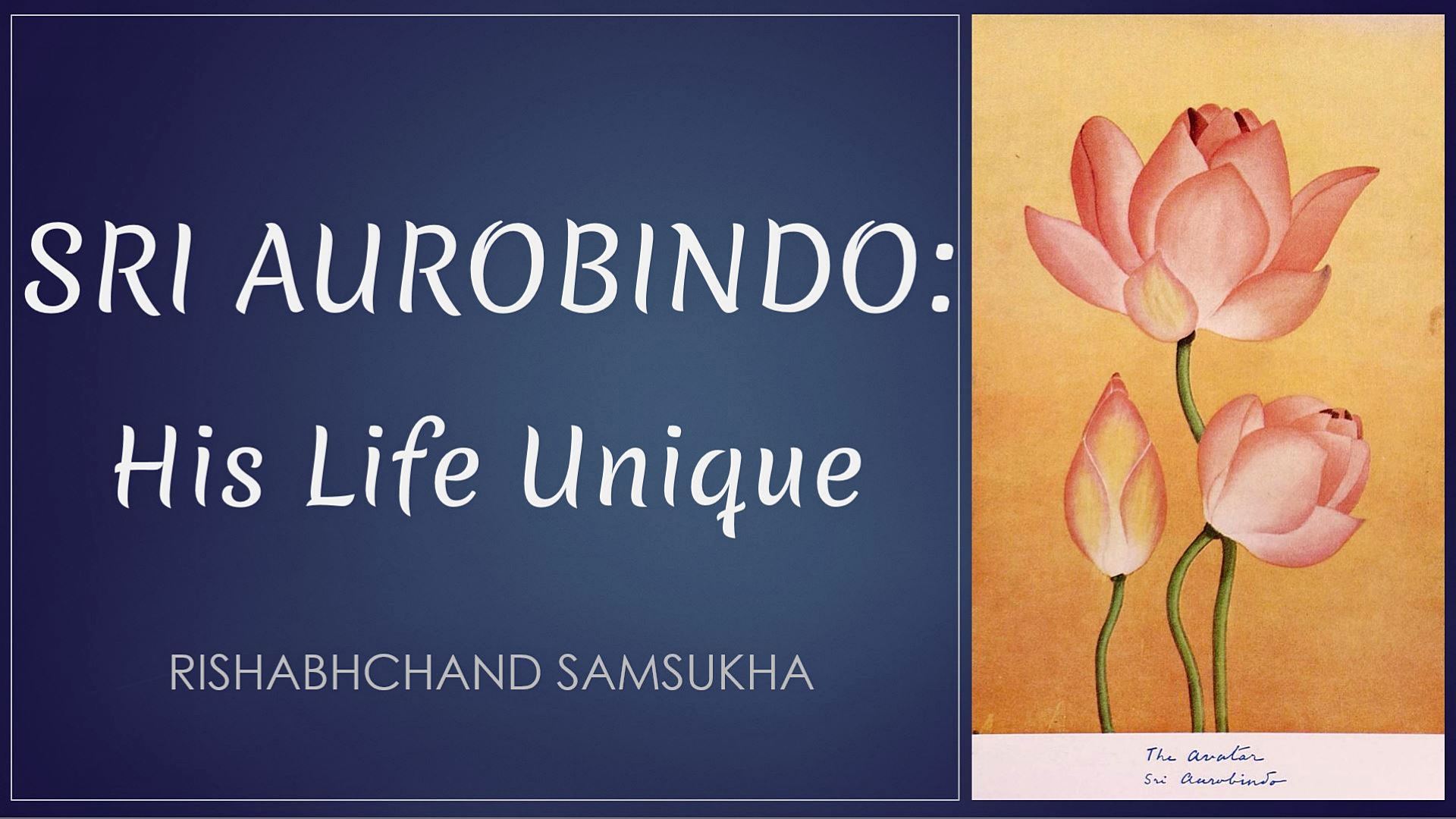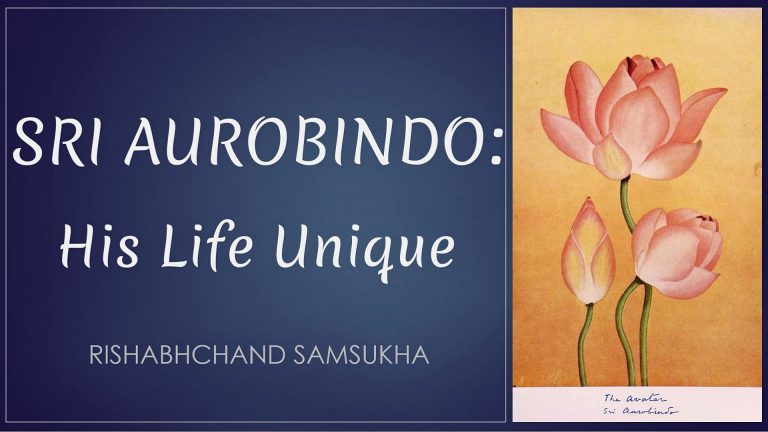Rishabhchand, the author of this book, has to his credit a number of other books, all of them shot through and through with the Light and Presence of Sri Aurobindo and the Mother. They stand out impressively against the background of innate humility and graceful flow of his style and language.
At the Feet of The Mother
Sri Aurobindo: His Life Unique

A unique biography of Sri Aurobindo, which was written by Rishabhchand Samsukha in response to a request from The Mother, reviewed chapter by chapter by Nolini da, and translated by Andre Morisset for its bilingual publication at the Bulletin over the period of 10 years starting in 1960.
Sri Aurobindo was the third son of his father. Aurobindo means lotus. It was an uncommon name in those days, and that was why his father chose it for his third son, little suspecting that, in occult language, aurobindo signifies the Divine Consciousness.
When Sri Aurobindo was eleven years old, he had a sort of premonition that great revolutions were going to take place in the future and that he had a part to play in some of them. Not a mental idea, but a kind of inner feeling was growing within him that he had some great work to do, a mission to fulfil.
When he had left India, he was a mere child of seven, perhaps unaware of the heavenly fire smouldering beneath his sweet, angelic exterior. And when he returned, he was a young man of twenty-one, burning to realise his dreams and visions.
The goal which Sri Aurobindo held up before himself at that early age when he wrote these letters to his wife, was not escape, not Nirvana, but God; not extinction of life, but its expansion and enrichment, its divine illumination, utilisation and fulfilment.
... three master passions dominated three principal stages of Sri Aurobindo’s life. The cult of spiritual patriotism dominated the first stage; the will to total self-offering to God, the second; and divine realisation and manifestation, the third. Essentially they formed an organic unity, all contributing to the accomplishment of his life’s work.
A brief outline of India in the middle of the eighteenth and the beginning of the nineteenth century will give the reader (and particularly the Western reader) the right perspective in which to view the origin, nature and growth of Indian nationalism and Sri Aurobindo’s contribution to it.
His first contribution to Indian politics was [...] a passion for complete and unqualified independence, which he infused into the Indian nation. And the sole driving force [...] was the religion of patriotism, the worship of India as the Mother [...]. This was his second contribution.
... people have formed and expressed misleading and often fantastic ideas of [Sri Aurobindo's politics]. Some have taken him to be a pacifist; others have dubbed him the arch-leader of the terrorist movement in Bengal.... The best thing for us would be to hear from himself what his politics really was.

